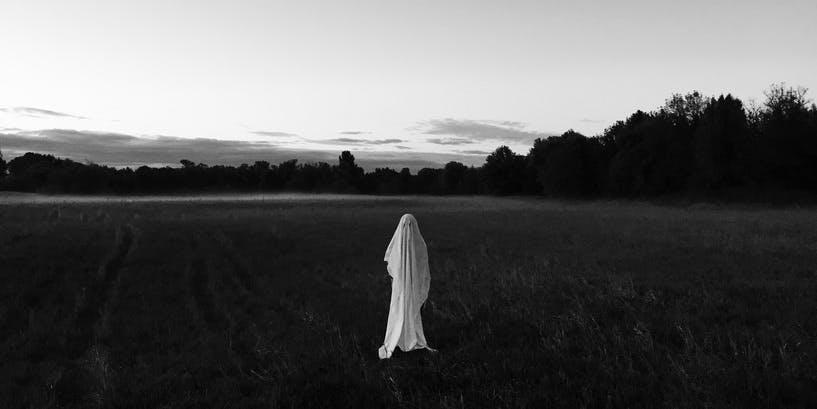Scary health stories for Halloween haunts!

Topics
Welcome to the Dr. B Weekly Roundup, a curated weekly overview that cuts through the noise to deliver vetted reads on Covid-19 and beyond. The king of creepy, Edgar Allan Poe, once wrote, "the boundaries which divide Life from Death are at best shadowy and vague.” We could say the same about the boundaries between illness and health, right? In a nod to all holidays that respect the veil, let’s dig into trick-or-treating urban legends, unsettling historical treatments + the scary scenario of living with an undiagnosed illness. You’ll feel safer after scrolling. No tricks included.
- The Checkup: not-so-scary updates
- Boo! lethal treats + medical mysteries
- Covid-19: news + fake news
The Check-Up:
- Eek! Watching horror films can release fear + benefit mental health
- But if you’re already healthy, mindfulness won’t change your brain
- Anyone (else) get hangry?! Here’s the science on hungry rage...
- And the 5 scariest dieting lies dietitians most want you to avoid
- An eerie + gripping read: Was it CRPS, Munchausen or child abuse?
- Don’t think about zombies. (Here’s how to stop unwanted thoughts)
- Bad tricks: Doctors admit why they don’t want disabled patients
- Passing out candy? These treats are not-so-scary for your health
Trick... or lethal treat?

Rainbow fentanyl is real. The tablets contain a drug 100 times stronger than morphine. 2 milligrams can kill a child. And authorities have seized thousands disguised as candy and hidden in Lego packaging. But will kids get rainbow fentanyl in their trick-or-treat bags? No.
Professor of sociology and criminal justice Joel Best has never found any evidence that a contaminated Halloween treat has killed or injured a child. But every autumn, renewed urban legends connect anything creepy + newsworthy to Halloween: Apples and razor blades. 9/11 terrorists bombing trick-or-treaters. Toddlers given marijuana gummies, etc. And so when DEA administrator Anne Milgram stated that the colorful fentanyl tabs were created to target younger buyers, the media jumped. Drug experts dismiss the idea: Children make terrible customers. (They don’t have money + spit things out that don’t taste good!) Fentanyl is too expensive to give away. And what would drug cartels gain by killing kids? Milgram's also since clarified that there's no reason to believe in such a connection.
Read the full scoop for more reassurance + the real danger of fentanyl + teens.
Weird + disproven medical treatments of yore...

Think vaccines are horrific? Consider this:
If painful black buboes covered your body during the Bubonic Plague, you might have received the Vicary Method, where someone would lay the plucked skin of a (live) chicken’s bottom on your infected sores. In the early 19th century, children with anything from teething to constipation got doused with Mrs. Winslow’s Soothing Syrup—an alcohol-morphine combo that proved so deadly it was later nicknamed “Baby Killer.” During the 1918 influenza epidemic, mercury laxatives and exposure to toxic fumes like nitric acid were treatment options. And mid-20th century medical innovations for cancer, scoliosis and mental illness look more sci-fi than scientific.
Creeped out but curious? Scroll this roundup for more. Then take comfort in how much we know about the bivalent boosters on our blog.
The scary reality of no diagnosis

A 68-year-old woman starts itching so severely that she scratches the skin off her body every night. Hard grooves and furrows mysteriously appear on the back of a 58-year-old man’s head. A five-month-old baby seems healthy…but only weighs ten pounds.
Dr. Lisa Sanders tracks such medical mysteries in her column, Diagnosis. In the U.S., there are 7,000 rare diseases—illnesses that affect under 200,000 people. They can be mind boggling for physicians to diagnose + excruciating for those living without treatment. Following their journeys highlights how little (and how much) we know about the human body. It urges patience + compassion. And it celebrates healthcare professionals committed to finding solutions. “I’m curious,” said Dr. Mathis, the physician of the man with a grooved scalp who wasn’t ashamed to research until he could diagnose acromegaly—the illness best known to affect the actor Andre the Giant.
How did the rest of those mysteries conclude? Click through Diagnosis.
The latest: pandemic
Quick and stealthy ‘Scrabble variants’ are poised to drive a winter Covid-19 surge (CNN). Projections expect that a new group of wildly-numbered variants will bump BA.5 from dominance by mid-November. People with weakened immune systems are most at risk—monoclonal antibodies don’t stand up against the newer subvariants. The bivalent boosters do offer protection. But not enough people have gotten updated jabs. If more do, we could save 90,000 lives this winter.
False claim that CDC would require covid vaccines for kids goes viral (Washington Post). A viral tweet by Fox News contributor Tucker Carlson is false. The CDC has not and cannot make Covid-19 vaccinations mandatory for school children. Only states and jurisdictions have that authority. A CDC advisory committee recommended adding the Covid-19 vaccine to immunization schedules. But that’s it. Health experts worry false social media statements derail vaccination programs + instigate distrust. When in doubt? Go to the source.
COVID-19 vaccine may protect pregnant women from SARS-CoV-2 placentitis and stillbirth (News Medical). An extensive review of almost 100 papers investigating Covid-19 + pregnancy found that all cases of SARS-CoV-2 placentitis that resulted in stillbirth or neonatal death occurred in unvaccinated people. “The development of SARS-CoV-2 placentitis is complex and likely involves both viral and immunological factors,” the study notes. It also specifies that most pregnancies affected by Covid-19 don’t result in stillbirth. Still, if you’re pregnant and unvaccinated, stay informed.
Topics
Sign up for the free Dr. B newsletter for a weekly report on the latest in healthcare + research-based advice for staying healthy and mentally well.